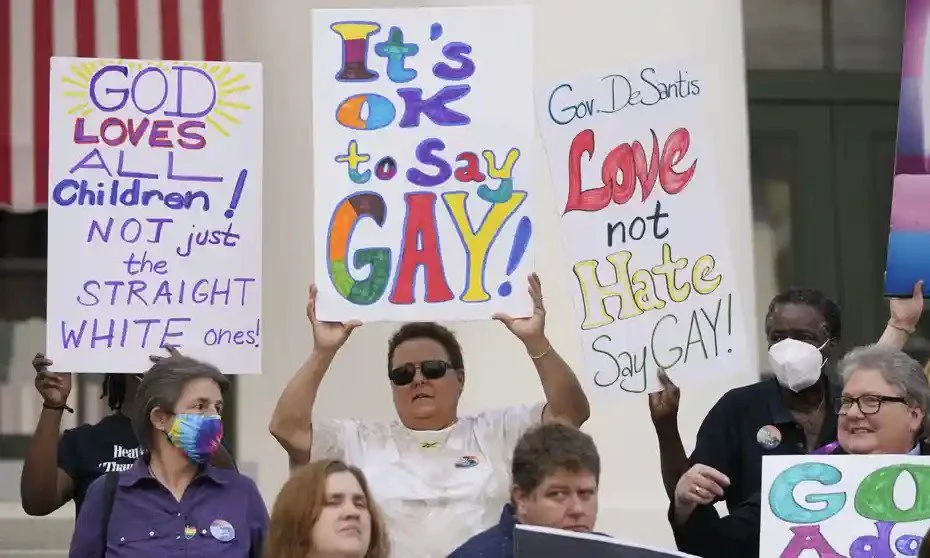‘Don’t Say Gay’ bill impacts Florida classrooms, causes national response
Florida’s proposed ‘Don’t Say Gay Bill’, formally known as the Parental Rights in Education Bill, or HB 1557, has sparked outrage and controversy throughout the country. The bill proposes that the teaching of LGBTQ+ topics be prohibited until third grade. Furthermore, parents that feel as though their child was subject to a discussion regarding these topics can rightfully sue the school district for violating the bill. Recently, an amendment to the bill was proposed which states that school officials with information confided in them about a student’s gender identity or sexual orientation are required to disclose the information to the student’s guardian(s) within six weeks of receiving the knowledge.
The proposal caught attention across the nation, both positive and negative. It even reached the attention of President Joe Biden, who voiced his stance on Twitter.
"I want every member of the LGBTQI+ community — especially the kids who will be impacted by this hateful bill — to know that you are loved and accepted just as you are. I have your back, and my administration will continue to fight for the protections and safety you deserve,” he said.
However, others that are in support of the bill have responded with the same fire as those against it.
“It just says we don’t talk about these things until kids are out of third grade. That’s all it says,” said Republican Joe Harding, a sponsor of the bill.
This bill isn’t the only anti-LGBTQ+ measure proposed recently. Some schools have begun banning books containing LGBTQ+ characters and relationships, as well as informational books regarding the topic. In Oklahoma, a bill was introduced that would prohibit public school libraries from displaying books that focus on sexual orientation or gender identity. This has sparked even more outrage within the country from not only LGBTQ+ members but others, including people from the West community.
Global English teacher William Brydon has had experience teaching about the LGBTQ+ community in novels within his class. He's one of many who feel concerned about the censorship of literature in schools.
“I’m against censorship of any kind for those reasons that try to deny the basic rights of human beings,” he said. “I think that, if anything, literature presents an opportunity to step into others’ shoes and grow empathy, which I think most would agree the world would benefit from.”
Characters in novels represent the everyday person and can often be used to help one discover themselves. Brydon frowns upon the removal of the discussion of LGBTQ+ community and banning books falling underneath that umbrella.
“I don’t see any benefit in that because it would be essentially like teaching that certain types of weather don’t exist,” he said. “People on all ends of the spectrum exist, and we should acknowledge that presence and celebrate that presence. I don’t think there’s any knowledge that comes from ignorance, and ignorance certainly isn’t bliss. We need to teach the real world as it exists so that people are capable of existing in the real world once they leave school.”
Teachers aren’t the only ones who disagree with these possible changes, as some students have expressed their feelings about the removal of LGBTQ+ books across schools in the US.
“When I was first learning about myself, it was literature that helped me in accepting myself,” an anonymous student said. “By removing those books from the library [in these Southern states], there will be a lot of queer students that will never have an opportunity to accept themselves.”
Regarding Florida’s ‘Don’t Say Gay’ bill, the anonymous student understands how the lack of education will hurt a generation.
“I feel like the younger kids need to learn about this, because the younger they are, the easier it will be for them to accept people,” they said. “LGBTQ+ students all over face discrimination, and that is a huge role in their mental health. With this bill being passed, I think there will be more marginalized students that are at a higher risk of engaging in self-harm tendencies and have an increased risk in suicide and suicidal thoughts due to lack of acceptance.”
By Emma Toney
March 18 2022
Oshkosh West Index Volume 118 Issue VI
